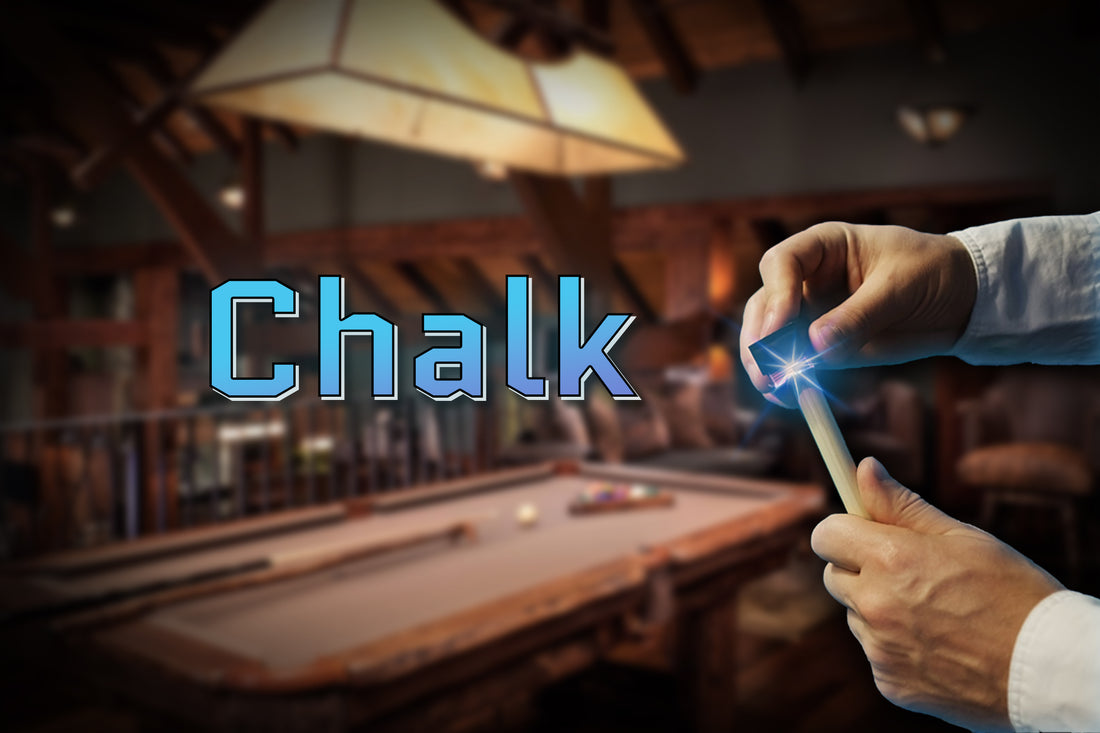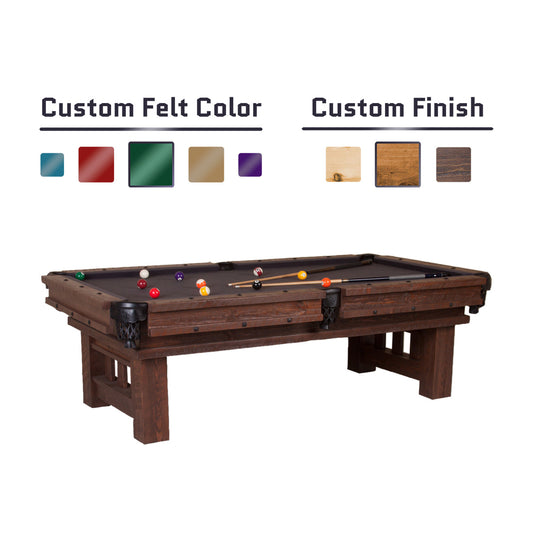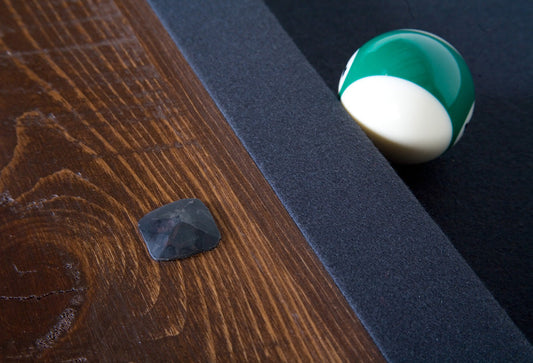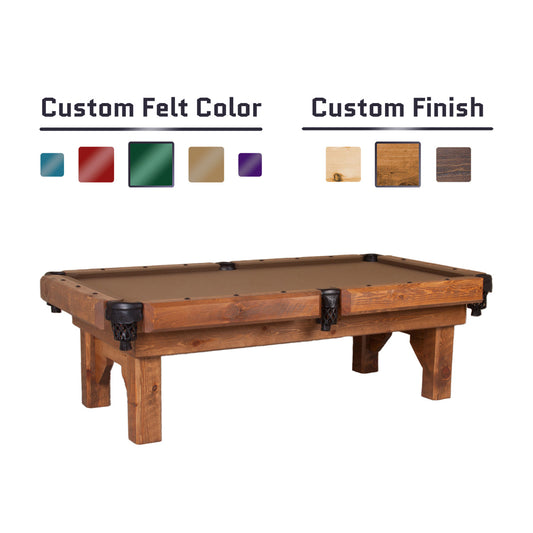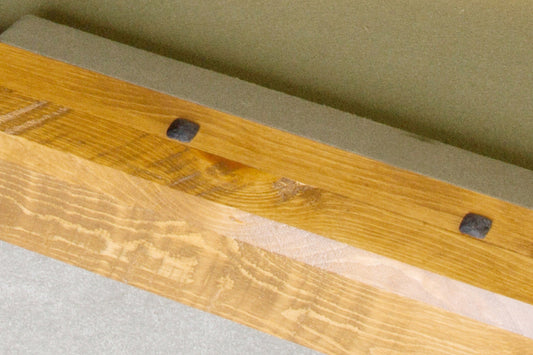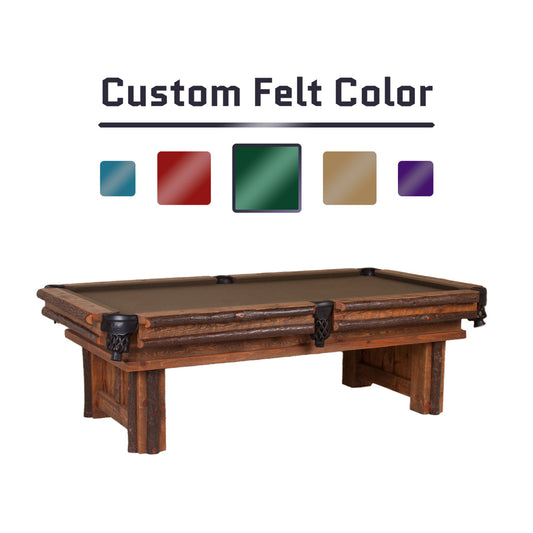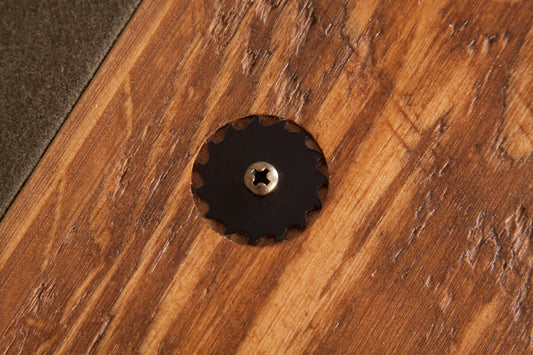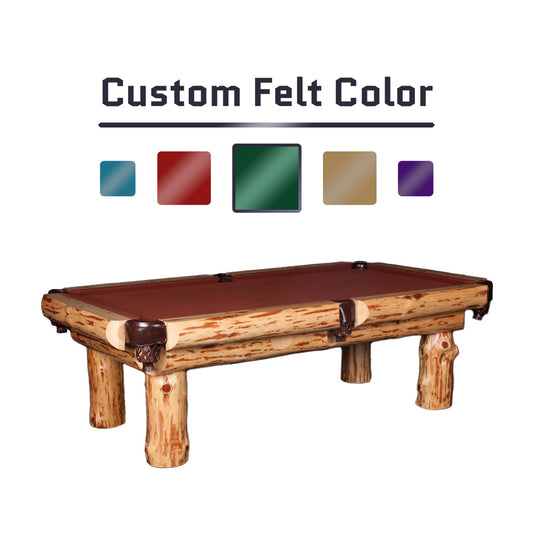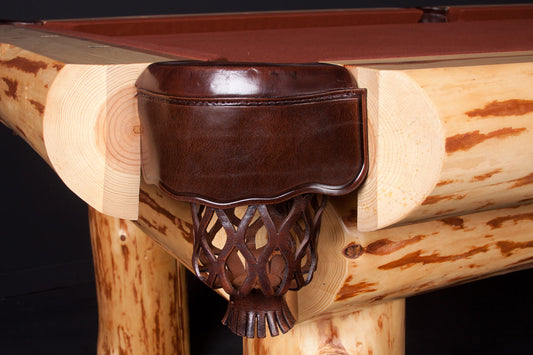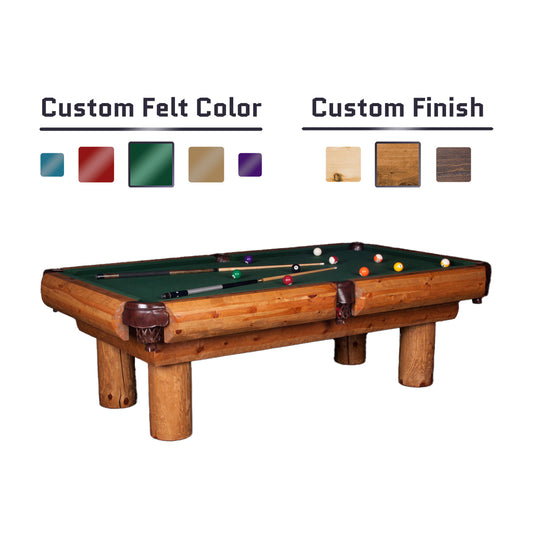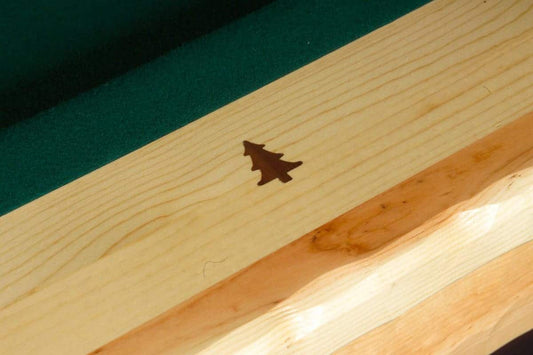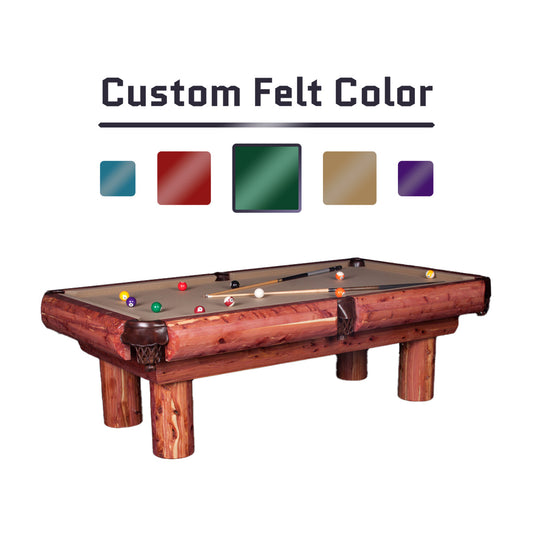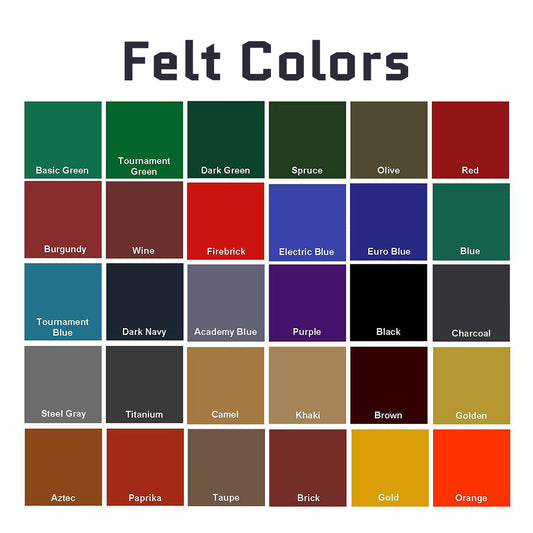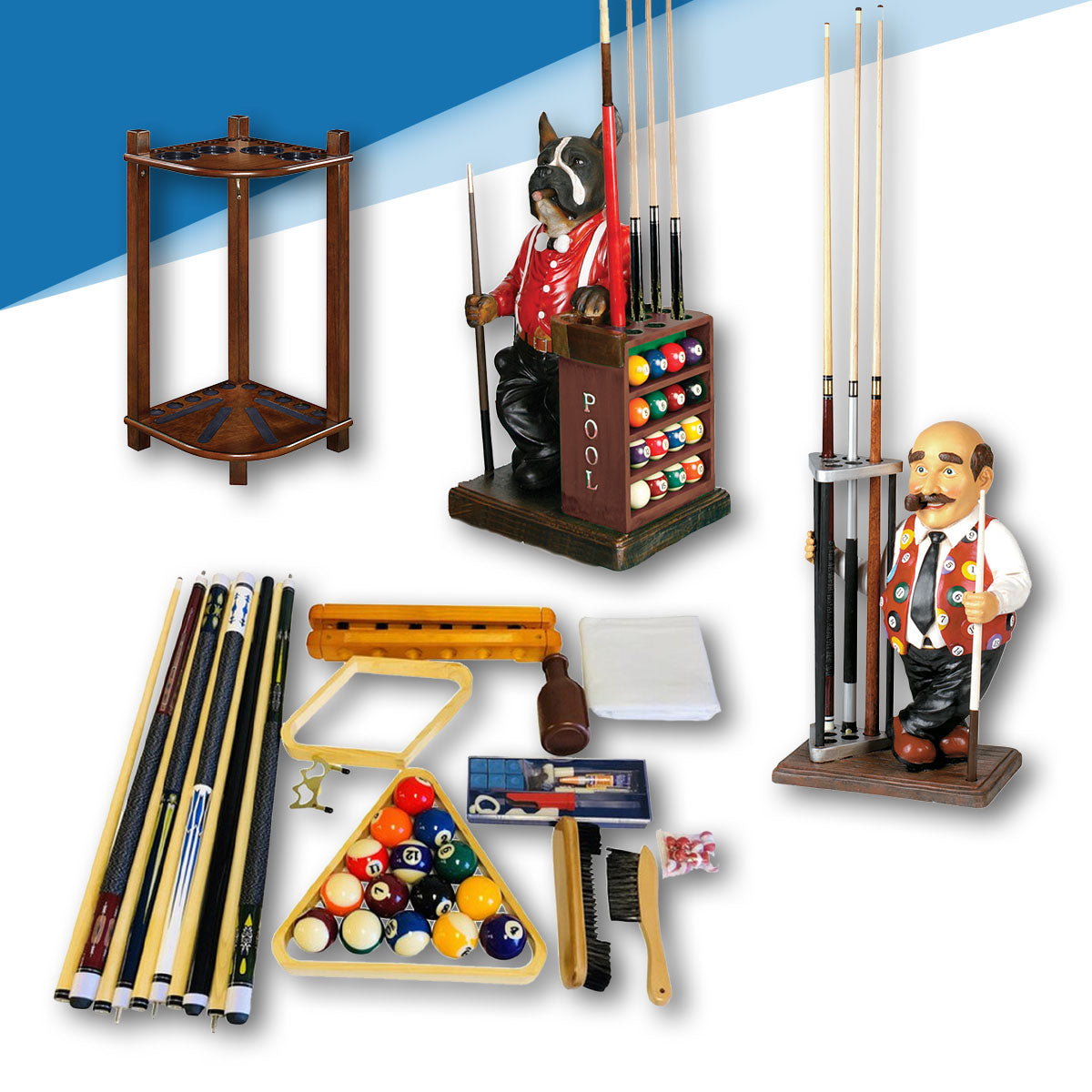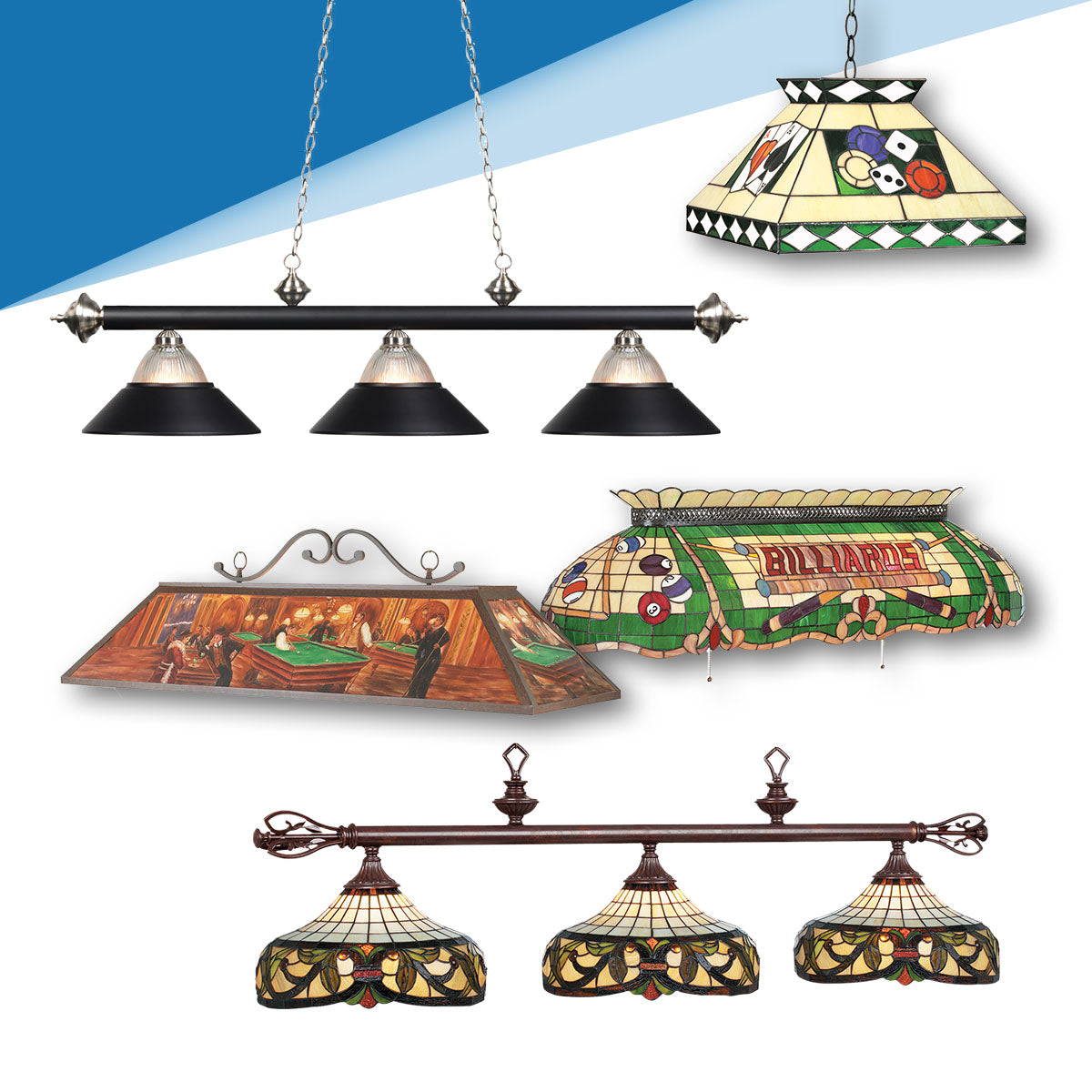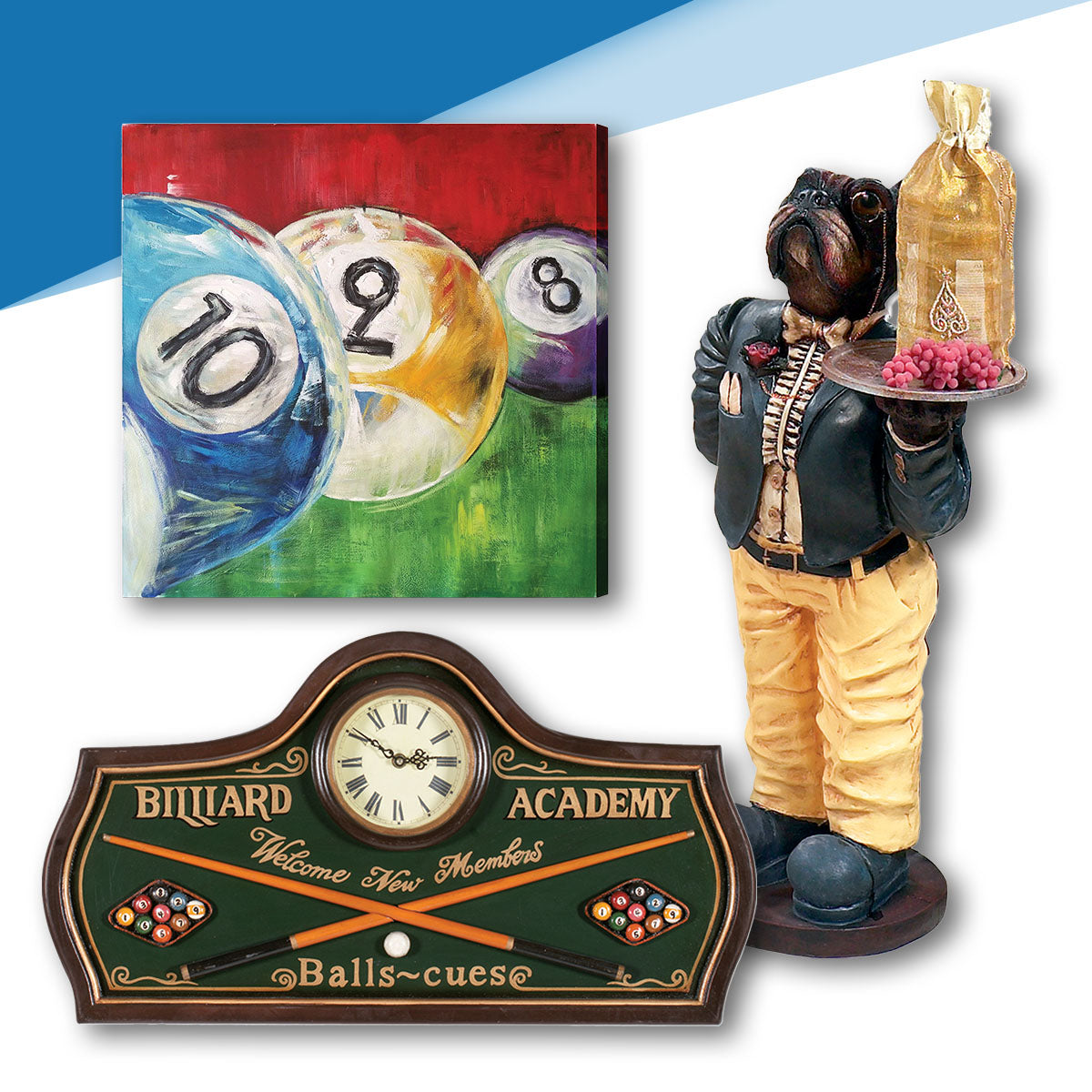Written by Daddy Cappuccino
6-minute read
Hey there, fellow cue enthusiasts! 🎱 Have you ever wondered about that seemingly magical blue stuff that pool players rub on their cue tips before taking aim? It's not a secret seasoning for the cue stick, and it won't make your shots taste better, but it sure does spice up your game! We're diving headfirst into the world of billiards chalk, that unassuming yet essential tool in the arsenal of every pool shark.
In this chalk-tastic journey (badum tish 🥁), we'll explore the secrets behind this often underestimated player. From the composition of pool chalk to why it's absolutely necessary for your game, we've got your back. So, chalk up that cue, and let's unravel the mysteries of billiards chalk together! 🌟
Table of Contents
- What Does Chalk Do in Pool?
- The Composition of Pool Chalk
- Why Chalk Is Essential for Every Shot
- Extending the Life of Your Pool Cue
- The Competitive Advantage of Chalking
- Choosing the Right Pool Chalk
- Conclusion
1. What Does Chalk Do in Pool?
Alright, let's start at the very beginning, shall we? What's all the fuss about this seemingly ordinary blue substance in the world of pool? Well, dear readers, it's anything but ordinary when it comes to the game of cue sports.
Cue Control and Precision
Picture this: you're lining up a shot, eyeing that cue ball, and envisioning it gliding gracefully into the pocket. Now, without chalk, your cue tip can be a bit of a troublemaker. It might not grip the cue ball properly, causing it to slide off at the wrong angle. That's where chalk comes to the rescue. When you apply a gentle dusting of chalk to your cue tip, it's like giving it a firm handshake with the cue ball. It creates the friction needed for precise shots, making sure your intentions are carried out faithfully.
Minimizing Mis-Hits
In the world of pool, precision is the name of the game. But nobody's perfect, right? We all have those moments when we don't hit the cue ball quite where we intended. Without chalk, that little white orb might just decide to go rogue, sliding unpredictably across the table. But with chalk in the equation, it's like putting Velcro on your cue tip. Even if you hit off-center or don't strike the ball just right, chalk's friction ensures that you still have a fighting chance.
Preventing Skids and Pops
Imagine you're about to nail a shot, and then, disaster strikes—the cue ball skids or, worse, pops off the table. Cue the frustration! Chalk acts as your trusty safety net here. It helps prevent skids and those dramatic table exits. With chalk in play, your cue tip grips the ball consistently, ensuring smoother, more predictable shots.
2. The Composition of Pool Chalk
Now that we've explored what chalk does on the table, let's dig into its very makeup. Billiards chalk isn't your run-of-the-mill classroom variety. It's specially crafted for the rigors of cue sports.
Silica and Corundum
Ever wonder what's packed into that tiny cube of chalk? Well, it's primarily composed of two key ingredients: silica and corundum. Silica, in simple terms, is silicon and oxygen mixed together, while corundum is crystallized aluminum oxide. These two ingredients create the magical combination that adds the right amount of texture and grip to your cue tip.
Friction Wizards
Silica and corundum work together like friction wizards. They ensure that when your cue tip kisses the cue ball, there's enough grip to prevent slippage. It's like the secret sauce of pool, allowing you to control the cue ball's trajectory with finesse.
3. Why Chalk Is Essential for Every Shot
In the world of pool, consistency reigns supreme. Whether you're sinking a simple shot or executing a jaw-dropping trick shot, you want every hit to be just right. Chalking up before every shot is your secret to maintaining that consistency. It ensures that your cue tip connects with the cue ball in the same dependable way, time after time. It's like having your cue stick on autopilot for accuracy.
Adding spin to the cue ball can be a game-changer, but it's a delicate dance. Chalk is your dance partner in this scenario. When you apply it meticulously, you create the grip needed to spin the cue ball with finesse. Without chalk, it's like trying to waltz on ice—your moves won't be as graceful.
Whether you're looking to draw the cue ball back or send it forward with follow, chalk is your go-to partner. It gives you the control you need to make these shots with precision. Without chalk, you're left with less control and more unpredictability. Remember, in pool, control is your best friend.
4. Extending the Life of Your Pool Cue
Chalking isn't just about grip—it's about preserving your cherished pool cue. Think of chalk as your cue's shield, ensuring it strikes the ball accurately without taking the brunt of the impact.
Without chalk, your cue's tip faces more friction and wear with each shot. Over time, the tip becomes smooth, making it prone to miscues and damaging impacts. Chalk acts as that essential lubricant, minimizing the wear and tear on your cue's tip. It's the difference between a cue that lasts and one that cries "retirement" prematurely.
5. The Competitive Advantage of Chalking
When you step into the pool hall, you're not just playing against the table; you're facing off against opponents. Chalking your cue properly isn't just a habit; it's a competitive advantage. It's your way of saying, "I'm here to win." By ensuring your cue tip is properly chalked, you're minimizing the chances of miscues and maximizing your control over each shot.
Pool isn't just about physical skill; it's a mind game, too. Taking a moment to chalk your cue isn't just about friction; it's about focus. It's your way of setting the stage, surveying the table, and strategizing your next move. So, don't rush it. Embrace the process, and use it to your advantage. Your opponents will see your dedication, and that's a mental edge.
6. Choosing the Right Pool Chalk
This might seem like a straightforward choice, but trust us, there are some key considerations to keep in mind. Just like a craftsman carefully chooses their tools, you should think about the chalk that complements your cue.
Types of Chalk
When it comes to chalk, there are primarily two categories you need to be aware of:
- Regular Chalk: This is the workhorse of billiards chalk. It's reliable, gets the job done, and is wallet-friendly. For the occasional player or someone starting out, regular chalk is a sensible choice.
- Premium Chalk: If you're a more dedicated player, premium chalk might be your calling. Designed for superior performance and longevity, it provides better grip and extends the intervals between chalking. While it may cost a bit more, the precision and fewer miscues it offers can be well worth it.
Colors Matter
Yes, the color of your chalk can make a difference, not in performance, but in visibility. Here's a quick rundown:
- Blue Chalk: The most common choice, often used on green pool tables. It's a versatile option that works for many players.
- Green Chalk: Some players opt for green chalk, particularly if their pool table has blue felt. The color contrast can help them spot chalk marks more easily.
- Other Colors: Billiards chalk comes in a range of colors. While the color itself doesn't affect your shots, it can add a personal touch to your game. Feel free to pick a color that resonates with you or matches your table's aesthetics.
Brands and Quality
Just like cues, chalk brands matter. Each brand can have its own unique characteristics. Some are renowned for exceptional quality and lasting power, while others offer budget-friendly options. It's a good idea to do a bit of research and perhaps experiment with a few brands to find the one that aligns with your playing style and preferences.
Once you've found the chalk that suits you and your cue, stick with it. Consistency in chalk type and brand can lead to a deeper understanding of your cue's performance. Knowing how your cue interacts with a specific chalk can help you fine-tune your shots, improve your accuracy, and boost your overall game.
7. Conclusion
In the world of pool, chalk may seem like a humble accessory, but it's far from ordinary. It's the unsung hero that provides the essential grip between your cue tip and the ball, ensuring accurate shots and preventing costly miscues.
Chalking isn't just a habit; it's a game-changer. Regularly applying chalk extends your cue's life, maintains consistency, and gives you a competitive edge.
Remember, whether you prefer classic blue or a more colorful chalk, what matters most is the confidence it gives you in every shot.
So, next time you step up to the pool table, give a nod to your trusty chalk, your silent partner in your pursuit of billiards glory.
🍻 Cheers to your billiards journey and see you in the next article!

